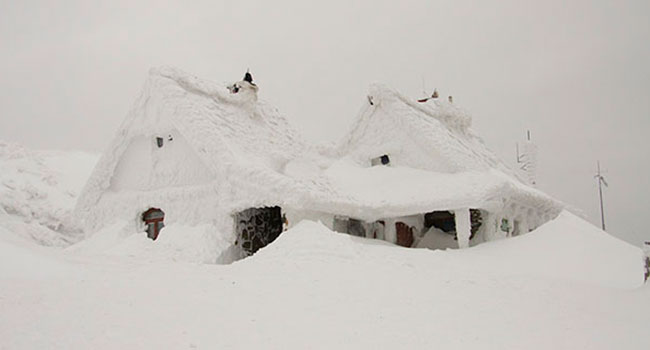 Extreme cold weather and mismatched supply and demand have pushed spot prices for liquefied natural gas (LNG) in Asia through the roof.
Extreme cold weather and mismatched supply and demand have pushed spot prices for liquefied natural gas (LNG) in Asia through the roof.
Bloomberg reports that LNG spot prices went from “almost to zero” in April 2020 to above US$30 per one million British thermal unit (MMBtu), rising “18-fold in less than nine months.”
Prices in Asia reached almost $30 versus just $2.60 per MMBtu in the United States. This resulted in traders diverting supplies to the hot Asian markets. Data intelligence firm Kpler’s ship tracking showed both Shell and Total diverting cargoes of Nigerian and U.S. LNG to Asia.
Chong Zhi Xin of energy consultancy IHS Market says, “buyers, with no alternatives, had to pay top dollar for prompt cargoes in January.”
China is facing a cold spell not seen since 1966. Below-normal temperatures in most of the northern hemisphere, from Madrid to Tokyo, led to the soaring spot LNG prices.
“The ongoing volatility in gas prices could now jeopardize as much as US$50 billion of gas-fired power projects in major South Asian LNG markets of Pakistan, Vietnam and Bangladesh,” Bruce Robertson, of the Institute for Energy Economics and Financial Analysis, was quoted as saying.
Rachel Morison of Bloomberg News says there could be more to come. A relatively rare weather phenomenon with the potential to disrupt the polar vortex is threatening to send an Arctic blast across North America, Europe and Asia starting in late January.
Due to gas scarcity, households from Japan to Pakistan to France have been forced to curb their electricity use. Last week, the French grid operator issued a red alert for high power demand. To cope with a similar scenario, Pakistan was forced to cut gas supplies to industry.
Parts of northeastern Sweden got their biggest snow dump since 2012, with 60 cm in just one day. Utility provider EON SE, struggling to restore power supplies, had to pay for hotel rooms for its customers.
With snow blanketing Madrid, the Spanish government was reportedly considering ways to intervene in the electricity market. Bills in the regulated Spanish market are linked to wholesale prices, currently at their highest in a decade.
With natural gas shortages, power plants in Iran are burning low-grade fuel oils that create toxic smog, or they are switching off entirely, triggering blackouts. Utilities in Japan and South Korea face similar issues.
The scarcity of shipping tankers has also contributed to the price hike. Over the past weeks, shipping rates have risen between 15 and 35 per cent to more than $150,000 a day.
LNG supply woes are likely to be felt in the summer, too. When north Asia, the biggest consumer of LNG, begins restocking, that will support price benchmarks throughout 2021. What was expected to be a delicately balanced summer just a month ago is now looking increasingly tight, underlines global energy consultant Wood Mackenzie.
“Gas customers globally can expect an unpredictable time ahead with substantially higher prices,” Robertson wrote.
The recent record-high spot LNG prices in Asia may have been just a short-lived blip in view of the perfect storm on the market. But growing LNG trade, more flexible contracts and increasingly interlinked regional markets could put an end to the relative stability of recent global gas prices, says Tsvetana Paraskova writing for Oilprice.com.
Canada’s federal government has issued at least two dozen licences for gas export schemes, but the expected boom hasn’t materialized. The COVID-19 pandemic has just been the latest in a long line of obstacles to development.
There’s also considerable opposition to the construction of LNG plants and associated gas supply pipelines from environmental organizations, and First Nations, who have some say over whether projects are developed on their land.
The cancellation of the Keystone XL pipeline in the United States just adds to the woes for Canada.
So Canada may not be able to capitalize on the current upheaval and volatility in the LNG markets.
Toronto-based Rashid Husain Syed is a respected energy and political analyst. The Middle East is his area of focus. As well as writing for major local and global newspapers, Rashid is also a regular speaker at major international conferences. He has been asked to provide his perspective on global energy issues by both the Department of Energy in Washington and the International Energy Agency in Paris.
For interview requests, click here. You must be a Troy Media Marketplace media subscriber to access our Sourcebook.
The views, opinions and positions expressed by columnists and contributors are the author’s alone. They do not inherently or expressly reflect the views, opinions and/or positions of our publication.


